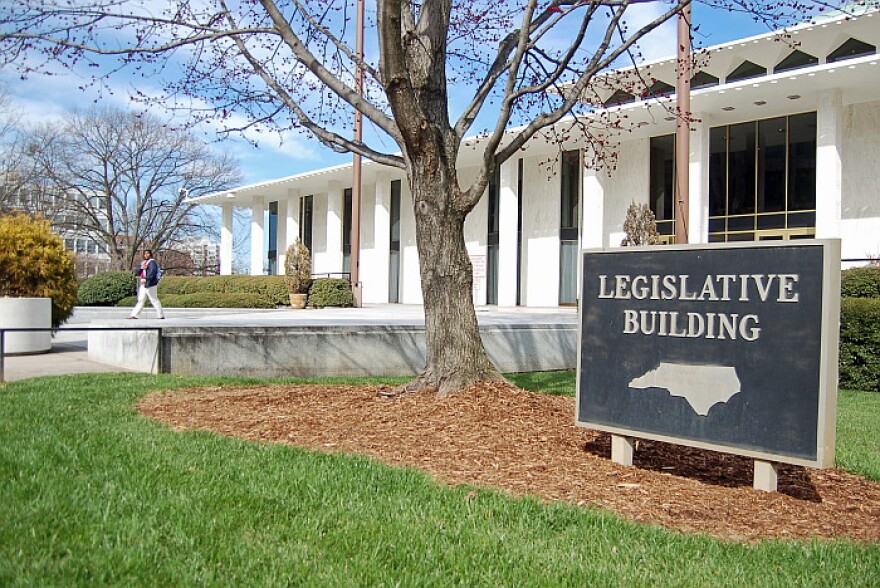Educators don’t often get a chance to celebrate publicly, so it was understandable when State Superintendent June Atkinson stood up at a news conference last fall and bragged a little about North Carolina’s 80 percent high school graduation rate.
“This is excellent news for our state and one more step toward ensuring that all of our students graduate from high school career, college, and citizenship ready,” said Atkinson.
For several years, starting in 2009 and ending last year, the General Assembly invested heavily in improving graduation rates. But at the same time, other state policies created a sub-class of high school students who have very little chance of a career, a college degree, or even citizenship.
Latino students have the lowest graduation rate among all racial groups. As of last year, about 72 percent of Latino high-school students graduate, ten points behind white students and two points behind African-Americans.
“We have thousands of high school students across the state who are undocumented who have aspirations to live here and contribute here,” said Graig Meyer, who works with at-risk students as the director of the Blue Ribbon Mentor Advocate program in the Chapel Hill/Carrboro schools. “The biggest impediment to them reaching those goals is the access to post-secondary education. And if they feel they can’t access post-secondary education, they won’t graduate from high school.
Back in 2008, faced with mounting public and political pressure, the state community college system banned undocumented students. It was a decision that politicians on both sides of the aisle got behind.
When she was running for Governor in 2008, democrat Bev Perdue said: “You know, you’ve heard me say, that I’m against allowing illegal immigrants who can never work legally in North Carolina, to be admitted to the community college.”
Republicans have similar views. “You should not be providing that sort of benefit to people who are, admittedly, illegally in this country,” said State Senator Phil Berger.
In 2010, the state community college system amended its policy. Undocumented students can now attend, but – as is the case at UNC system schools – they must pay out-of-state tuition. For all but a few undocumented students, that effectively shuts them out of public higher education in North Carolina.
A 2011 study out of UNC-Chapel Hill compared states with policies like North Carolina’s to others – like California and Texas - that allow undocumented students to pay in-state tuition. It showed that states with the out-of-state tuition policy had a seven percent lower high-school graduation rate for Latino students than states with in-state tuition policies.
Maria knows the impact of such a policy well. She’s an undocumented student who doesn’t want to use her real name, and she watched as her older brother lost his way.
“He was one of those students who got in the mindset that ‘what’s next? ‘What’s after high school? I don’t have a social security (card) and I can’t apply for financial aid’,” she said.
Maria’s brother eventually got arrested in Alamance County and was deported to Mexico. But Maria is determined to overcome the same obstacles. Her parents brought her here when she was a child. Now, she’s a senior at East Chapel Hill High School and has maintained a grade point average above a 4.0. She volunteers with numerous organizations and has been on not one, but two, cross-country bike trips.
“I’ve wanted to be a nurse since fourth grade after a small bike accident where I ended up at the hospital just overnight,” she recalled. “I really liked the nurse I had. She played movies and after that day, I asked my parents to take me back. And they were like ‘you can’t go back, you’re healthy, you’re fine.’
To achieve her dream, Maria realized pretty quickly that private college was her only real option. There, she’s had a fair chance to compete for academic scholarships. And she’s done well: Barton College in Wilson offered her a four-year, $80,000 scholarship. And because of the state’s policies toward undocumented students and her own desire to travel, she says it is unlikely she will pursue a career in North Carolina.
She’s motivated by a long-term goal, to become a nurse, to be someone who contributes to the welfare of our society,” said Meyer. “That’s the type of young person that I want living in my world.”
The world for undocumented students in North Carolina is not going to change any time soon. Federal immigration policy shows little sign of movement and the North Carolina General Assembly is highly unlikely to consider altering the policy.
And while Governor Pat McCrory has talked about ensuring students are “on the right path” in high school and college that will lead to a “productive and satisfying career” it’s a path that, right now, doesn’t have room for undocumented Latino students.







